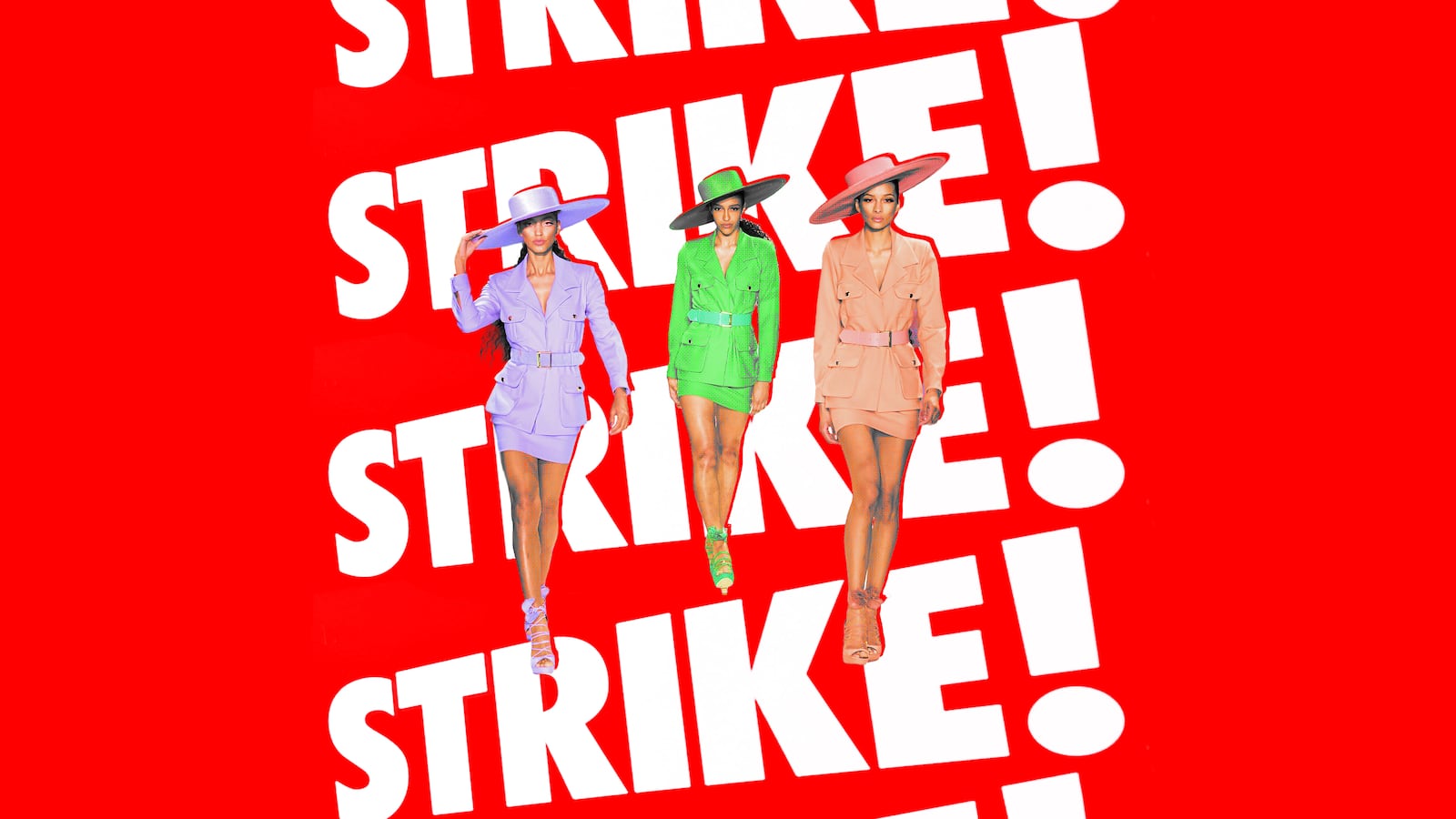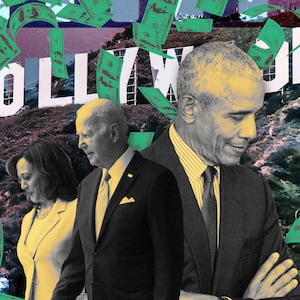The entertainment industry is in a labor resurgence: SAG-AFTRA joined the writers on strike earlier this summer, and just recently backed reality TV stars fighting for residuals. Decades of the erosion of antitrust and labor laws led us to this moment where workers are mobilizing against their multi-billion dollar, seven-headed corporate employers for a fair deal.
As an actor and SAG member, I am proud to be a part of this movement, but what remains unchecked is my other career that keeps me and many other actors afloat in between jobs: modeling.
As I join fellow actors on the picket lines, I recognize just how far behind models are in regards to workplace protections. Models experience similar issues at work as actors, but we lack the basic labor standards and protections that actors already have. And with many SAG members also working as models, this is the moment to shed light on the drastic discrepancies in our protections, and use this time of disruption across industries to make our working conditions fair and safe.
One vehicle for change is the Model Alliance. This labor rights advocacy organization promotes labor standards for fashion workers and introduced the Fashion Workers Act. This New York State bill aims to regulate the modeling industry and create basic protections for workers.
Unlike actors who are hired as employees by production companies, models are often hired by brands as independent contractors, and thus unable to unionize. With each new modeling job, we can only hope the brand will treat us fairly—working at our own risk. With that risk is no assurance that talent will be paid for their work.
For example, in 2014, I booked a skincare campaign for a household-name brand. While this company paid for the rights to use my image, I later saw my image featured in another campaign by one of their partner companies. My image was re-used in an entirely different campaign beyond our agreed usage terms; I was not notified, nor paid. When my team sought remittance for the breach of contract, the partner company offered nothing more than an apology.
Around the same time, I booked a speaking role on a major network television series. I discovered my episode later airing on airlines and networks across the globe. It is only with the help of SAG that my work on this show is still valued and I receive paychecks for any reruns of my episode.
As actors and models, we are both a part of an end product that is monetized, whether that’s a skincare line or a television show. The more that product is sold and companies profit from us, the more workers should also be paid. But for models, there is no way to track our own image, so we cannot be sure we will even be compensated for our work.
Models typically hand over power of attorney to our unregulated model management companies, giving them the power to negotiate and sign agreements on our behalf. This means, in most cases, we don’t even see the agreements we enter into before doing a job.
Sometimes model management companies withhold the models’ earnings, forcing us to spend months, or even years, tracking down our wages, or spending more money to pursue legal remedies. When we finally get paid, so often we see hundreds or even thousands of dollars of unexplained fees taken out by the model management company with no union support.
When it comes to one of the issues currently top-of-mind for actors, Artificial Intelligence (AI), models will be the first to be replaced. Brands are already using AI models to cut costs in their campaigns instead of hiring and paying human models. Usage clauses often include “in perpetuity, throughout the universe” which means that a brand can purchase a person’s image, voice, and likeness for one lump sum, forever.
As writers and actors continue to take to the picket line, I hope the attention on the exploitation of entertainment workers will also include the exploitation of fashion workers. The Fashion Workers Act, currently under review by legislators in New York, will ensure that the workers who create major value for the fashion industry receive the basic dignity they deserve. I urge lawmakers who support SAG-AFTRA and the WGA to back the Model Alliance in passing the Fashion Workers Act.
Kai Braden is a model and actor and member of the Model Alliance’s Worker Council.









